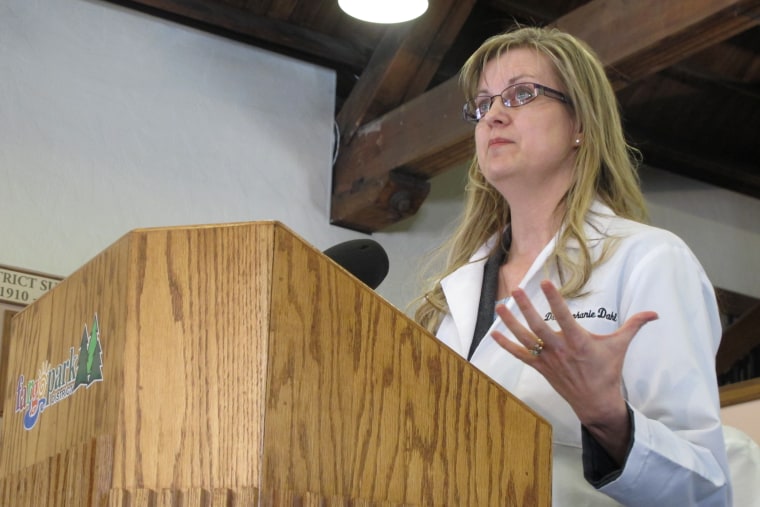UPDATED at 4:00 p.m. ET: The people of North Dakota will get to decide whether fetuses deserve the same rights as adult women.
The North Dakota House of Representatives passed a personhood amendment on Friday, one week after the state Senate approved a bill that bans abortion after a fetal heartbeat can be detected. The question of whether “the inalienable right to life of every human being at any stage of development must be recognized and protected,” as the amendment says, will be decided by the state’s voters in 2014.
The house also passed two other anti-abortion measures Friday, meaning Gov. Jack Dalrymple now faces the choice to sign or veto a total of four abortion-related bills. A rally is planned for Monday at the state capitol in Bismarck to protest these legislative attacks on reproductive rights. Several conservative Republicans state lawmakers are planning to attend.
This is the first time that a personhood amendment has been approved by state legislators.
Arkansas and its recently passed 12-week abortion ban are about to be surpassed, if North Dakota Republicans get their way.
The state's Republican-controlled Senate sent two anti-abortion bills to Gov. Jack Dalrymple for signature last week and could vote on four more bills limiting reproductive rights as early as Friday. The bills, which would ban all abortions after a fetal heartbeat can be detected and make it more difficult to terminate pregnancies complicated by genetic defects, would make North Dakota’s abortion restrictions the strictest in the United States, essentially outlawing any and all procedures after six weeks. "Restrictions on abortion only take away safe abortion," Tammi Kromenaker, director of the Red River Women's Clinic in Fargo--the state's only abortion services provider--told msnbc.
North Dakota is far from the only state to pass laws intended to make abortion as inaccessible as possible. In addition to Arkansas' ban on all abortions after 12 weeks where a heartbeat can be detected, and the Texas Senate approved a bill on Tuesday that could close all but five of Texas’ abortion clinics. Arkansas Gov. Mark Beebe vetoed the proposed ban only to see his veto overridden, which could be a possibility in North Dakota as well. Gov. Dalrymple is a conservative Republican, but he has faced strong public opposition to the bills on constitutional grounds and has yet to sign either of the measures approved last week.
These are just some of this years attempts by state lawmakers to circumvent Roe v. Wade. Some of the more high-profile examples of recent years are South Dakota’s 72-hour waiting period restricting access to abortion services, Virginia’s attempt to mandate transvaginal ultrasounds before getting an abortion, and 2011’s failed amendment to Mississippi’s constitution that would have granted full rights to fetuses. While North Dakota would not criminalize women who seek abortions for terminating a pregnancy, the proposed punishment for doctors who perform a procedure after a fetal heartbeat is detected is up to five years in prison and a $5,000 fine. Some procedures are capable of detecting a heartbeat earlier than others, and many women don’t even know they are pregnant by the time a heartbeat can be detected, the bill avoids addressing such medical details.
Advocates for reproductive rights have already said that they intend to challenge the North Dakota legislation if it becomes law. In the meantime, the Red River Women's Clinic has been "inundated" with support, according to Kromenaker. The clinic is an abortion provider for women from Minnesota and South Dakota in addition to the women of North Dakota, which means any cut to services could prove devastating to the some 1200 women that seek care at the clinic, but Kromenaker thinks that the governor may still veto the legislation. "We still hold out hope," she says. "You don't have to agree with abortion to veto [the bills]."
Watch Melissa Harris-Perry at 10 a.m. EST Saturday for a further discussion of the conservative drive against reproductive rights.
